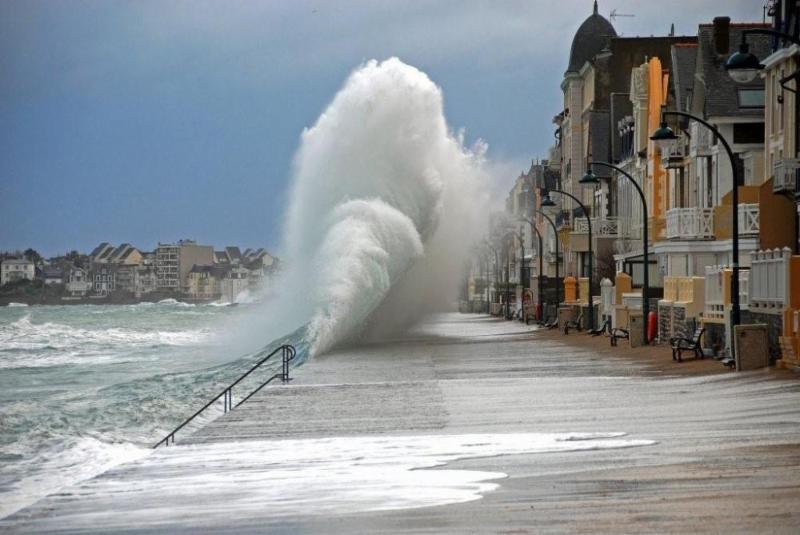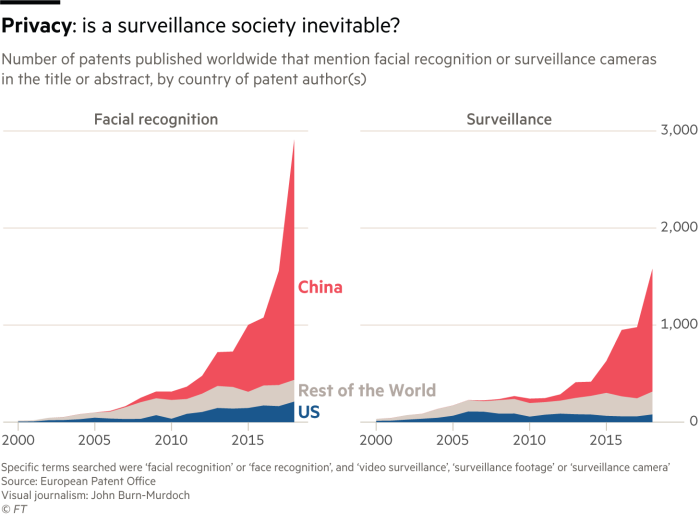 Late afternoon winter wind in Saint-Malo.
Late afternoon winter wind in Saint-Malo.
The city has the highest tides in Europe, with water that can rise 13m over the course of six hours.
31 December 2019 (Saint-Malo, France) – Every New Year’s morning I go down by the sea, scratching notes to myself in the sand (“stuff to do in the coming year”) with an old wooden staff given to me 50 years ago by my maternal grandfather. It was a family custom. Write, internalize, and let the sea erase.
Usually, I was in Greece but for the last few years my wife and I have spent New Year’s weekend and the following week at our home in Saint-Malo. And yes, I bring that old wooden staff. In Norway they have a name for the hiatus between Christmas and New Year: Romjul. With “Jul” meaning Christmas, it’s something to do with having “room” to reflect and clear out your life, making “room” for the new year.
So my wife and I extend that break to rest, recharge, recalibrate, and re-energize ourselves for the months ahead, and whatever they may bring us. It follows the advice given to me long ago by Dominique Senequier (she now heads Axa Private Equity in France) who told me the trick to happiness and personal success is to be committed to all aspects of your life, and incorporate down time to do it. Otherwise we are like fish who do not know they swim in water, and are seldom aware of the atmosphere of the times through which we move.
We’ve all read many “year-end-in-review pieces” plus many “the-decade-in-review” pieces” that have proliferated across the internet this month. We know the year (and maybe the decade, depending on which side you are on) was filled with unprecedented shifts and shocks around the world – a tornado of news-making that scrambled our grasp of time and memory, producing a sensory overload that can make even seismic events disappear quickly from the collective consciousness and public view.
Events that should be seared into our brains and conversations are mere blips on our screen. A long-time friend, Danielle Alberti at Axios, produces a chart every year (based on search trends from Google News Lab) that shows how short our attention spans have become as news coverage darts from one massive event to another:
And truth disappears. “Truth is gold” is something I constantly hear. Well, if so, that means you can melt it, bend it, flake it, fake it, or pound it into dust. Reality, in today’s world, is something you knead. Social media has led us to skate over the surface of life, touching things lightly but never getting caught in the real essence of what is going on, and why. And the ogres have mastered language and culture. I often hear that literary culture, or even just plain truth-telling, is in itself a bulwark against all of this. But the facts don’t bear out the hypothesis. Literary culture is no remedy for totalitarianism. Ogres gonna ogre. Rhetoric is as liquid and useful for the worst as it is for the best. The humanities, unfortunately, belong to humanity. And you can’t put that genie back in the bottle.
If I consider events over the past decade, the following were seared into my brain, or portend the future I think to come:
* The August 2019 shootout in El Paso, Texas ranks as a definitive moment full of meaning. What strikes me is the contrast between the calamitous, destructive energy of the event itself and the seemingly cool placidity of the perpetrator. A 21-year-old white man from a concrete suburban enclave where little of note disturbs daily municipal affairs – Allen, Texas – legally purchased an AK-47.
He then drove some 650 miles so as to get to a city full of people with ties to Mexico. In El Paso, he entered a Walmart and killed 22 people, a number that made the event historic, in a twisted sense – “the deadliest anti-Latino attack in American history”. Then he drove to a nearby intersection and calmly gave himself up to law enforcement officials, as if turning in his tools after a job completed.
The coldbloodedness of the proceedings, the sense of duty that pervaded the actions of that man behind the gun, all feel indicative of a new normal in the United States.
* A decade after Disney acquired Marvel, and seven years after it acquired LucasFilm, the entertainment conglomerate continued its quest for world domination when it acquired 21st Century Fox in March 2019. Soon, it will be impossible to consume any media that isn’t produced by Disney, and nobody seems worried about it. The attention is all spent on the FAANGs – Facebook, Amazon, Apple, Netflix, Google. For a simply hysterical “vision” of what is to come click this link.
Where once Disney was a powerhouse of proprietary, studio-created stories and characters (albeit many of them based on public domain fairy tales), the main sources of the new Disney products and stories have been other companies that it purchased. And of course, none of those purchases would have been permitted under the version of antitrust law that led to the founding and growth of Disney. It wasn’t until Ronald Reagan, Robert Bork, and every US president since systematically dismantled antitrust that these kind of acquisitions became possible.
This growth strategy warps the competitive landscape in so many ways (I haven’t the room here to expand that thought) and merely reinforces the monopolized marketplaces we now experience, and shall forever experience.
* On a more personal note, I hate the changing role of media. I don’t just mean the shuttering of entire outlets, though that’s part of it. I mean the abandonment of long-form journalism. It puts us all in the present tense. It’s as if our cognitive resources are shifted from our hard drive to our RAM. That which is happening right now is valued, And everything in the past or future becomes less relevant. The media (and internet) have pushed us all toward the immediate. We have created an environment which rewards simplicity and shortness, which punishes complexity and depth.
But as media maven Ernie Smith has noted, on the plus side we have seen long-form individual creators have slowly achieved more control over their business destiny, thanks to the rise of subscription platforms. He says: “Patreon topped a billion dollars in payouts over its history, while platforms like the email tool Substack also enabled these sorts of control-over-destiny steps. We have a way to go. I’m uncomfortable with the way funding platforms are effectively VC-funded walled gardens themselves, and existing platforms still have so much power. But this new trend gives people a voice and a paycheck – without a loss of integrity.”
* The two best performing public stocks of the decade … Netflix (+3700%) and Domino’s Pizza (+3000%) .. perfectly epitomize the 2010s. You either build the world’s most advanced machine learning content recommendation system, or make the best pizza delivery system. There is no middle ground. Domino’s former CEO always called Domino’s a “tech company that sells pizza”.
It is worth noting that Domino’s has always had the best tech team of any pizza place. They were the first food delivery company to have a fully digital system. My cousin (who is the king of online food delivery consumption) noted “I remember ordering a pizza through a command line interface in 2013. They had the first/best mobile app, etc. Yeah, I remember these things”.
And the companies were complementary: stay home, order pizza and watch Netflix. The decade where people stopped leaving their houses entirely.
* My graph-of-the-decade: a surveillance society impossible to stop
* For those of us in the technology world, it has been a killing pace. Yes, the breathtaking advance of scientific discovery and technology has the unknown on the run. But as we are hurled headlong into this frenetic pace we realise we suffer from illusions of understanding, a false sense of comprehension, failing to see the looming chasm between what our brain knows and what our mind is capable of accessing.
It’s a problem, of course. Science has spawned a proliferation of technology that has dramatically infiltrated all aspects of modern life. In many ways the world is becoming so dynamic and complex that technological capabilities are overwhelming human capabilities to optimally interact with and leverage those technologies.
And that tech news/announcement cycle moves so fast that by the time it took to research, write, reflect, edit, and publish, it has already become yesterday’s news. In 2019 (hell, the past decade), yesterday’s news might as well be last year’s news.
And we realized the real reason why Google and Facebook won’t change is that they’ve ushered us into the new era of capitalism, on their own terms. So why should they care about their scandals. And we also realized from our study of computational propaganda that if you make it trend, you make it true.
We saw the EU implement new General Data Protection Regulations, implemented to curb the influence of Big Tech. Ironically, the nature of the consent requirements at the core of such regulation has only served to aid their business models. Walled gardens resulted: platforms requiring the public to sign in and consent to sharing their data with approved business partners, aka the media industry. For advertisers unsure as to the robustness of third-party data when it comes to privacy compliance, playing it safe meant concentrating their media spend within the walled gardens. I will have a more detailed explanation on the failure of the GDPR at the top of the new year.
So we remain flummoxed. It’s hard to say whether things got better this decade. The nuts and bolts of technology certainly did; but it also destroyed whole industries, and in the cracks a privately owned and operated surveillance state grew. While the internet erased the physical distance between us all, it radically increased the psychological distance. Social media has given a voice to the oppressed people who wouldn’t otherwise have it; and, at the same time, it lubricated the rise of right-wing authoritarian movements across the world, which threaten to further marginalize the same people it empowered. Every video of a cop killing a black person that circulates on social media is a snuff film, and now I can see people being hurt by their governments and MAGA-fied peers in real time.
TRAILING THOUGHTS …
The time is out of joint-O cursed spite,
That ever I was born to set it right.
These are Hamlet’s words to his friend Horatio in the fifth scene of the first act after the encounter with his father’s ghost and learning that his uncle Claudius, who is now married to his mother, had murdered his father. And “time is out of joint” was the title of Philip K. Dick’s classic sci-fi novel that predicted where we would be today. Dietrich Bonhoeffer, Jacques Derrida and Robert Vasloo delve deeply into this so some brief thoughts.
Derrida wrote that Hamlet witnessed the disorder and injustice caused by the murder of his father and the murderer’s marriage to his mother, taking his father’s place in bed and on the throne. It inspired nausea and disgust rather than action, until the very end. The play is the story of Hamlet’s swing between thought and action … complaining to Horacio, then plotting revenge, then swinging back to thought. Until Hamlet finally annihilates himself. Philosophers used it to develop the “doctrine of Hamlet” applied to modern times: the paralysis of action by an excess of knowledge. The power of powerlessness.
In some way, one can of course say that every age and every time is a “time out of joint.” Today the hideous face of decadence, of immorality, of cynicism, of depravity grins at us from every corner and crevice. We want to “set right a world and age that are out of joint”. But we feel a sense of resignation, felled by an incapacity of action. Felled by the power of powerlessness. So we Tweet, we blog, we gnash our teeth. And feel better.
And if you read your history .. and I mean really read it, not a skim … you realize our modernistic time regime has been in crisis since the 1980s. Not just recently. The Western myth of historical progress is just that – a myth. When the history of our time comes to be written, one of the things that will puzzle historians is why we allowed ourselves to sleepwalk into dystopia.
I cannot change the world. No one can. My decision, my challenge is to embrace simplicity again. For me, I get away from the noise for awhile, to listen more clearly to my own voice and remember how much I really do prefer quiet seaside walks to noisy city streets, both literally and metaphorically.
But we all must take a deep breath. So I hope you all have the opportunity to rest, recharge, recalibrate, and re-energize yourselves for the months ahead, to prepare for whatever they may bring you.
My sincere thanks to all of my subscribers, clients and readers this past year for your support and continuing feedback.
I wish you all a safe, healthy and joyful New Year.


